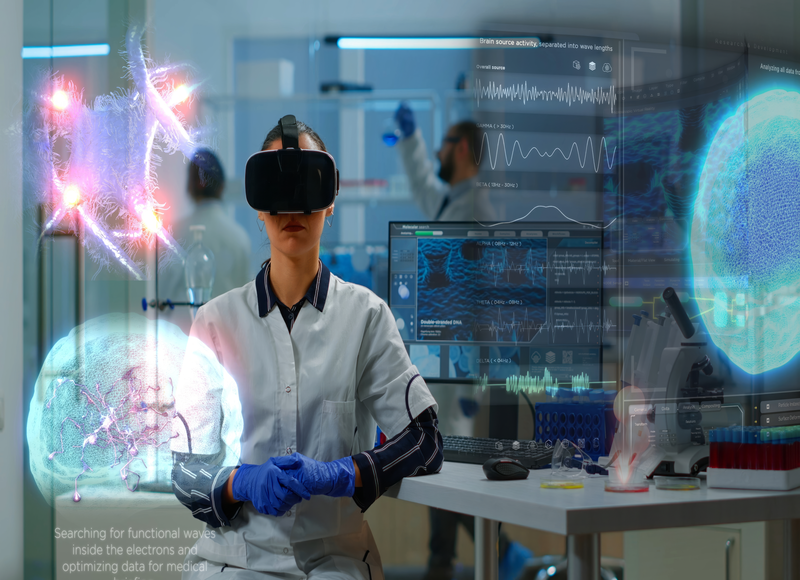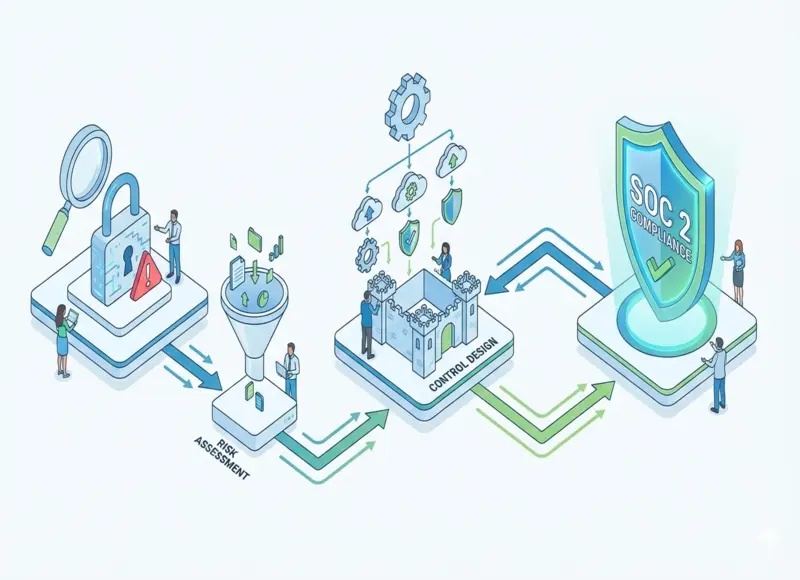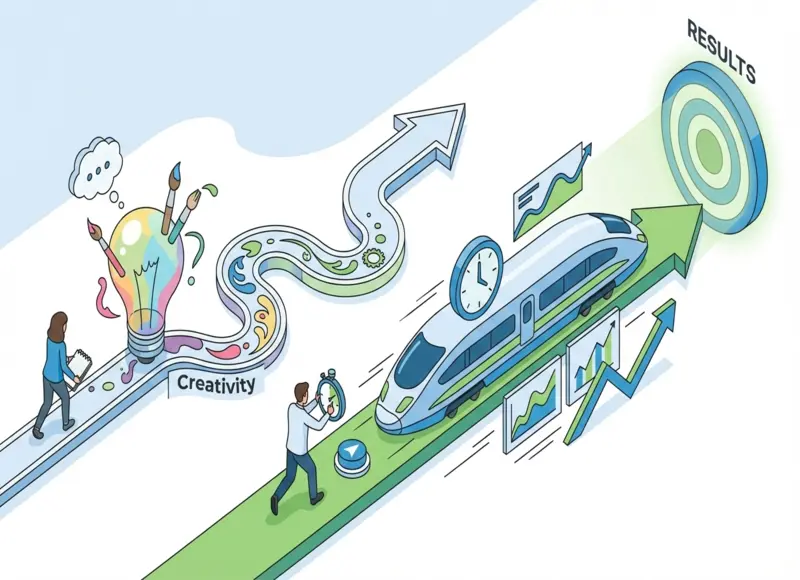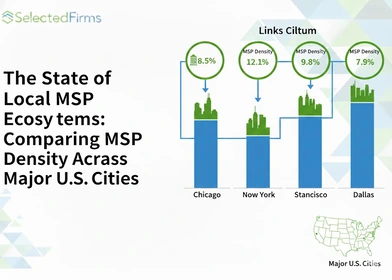Table of Contents
Discover the transformative power of data science and artificial intelligence with our comprehensive guide, "The Rise of Data Science and Artificial Intelligence." This essential resource covers everything from Gen AI certification to the revolutionary ap

In today’s rapidly evolving digital landscape, data science and artificial intelligence (AI) are more than just buzzwords—they are transformative technologies reshaping industries across the globe. Whether you're a tech enthusiast, a working professional looking to upskill, or a healthcare provider aiming to leverage cutting-edge tools, understanding the interplay between these fields has never been more critical. From the advent of Gen AI certification programs to the revolutionary applications of AI in healthcare, we are witnessing a pivotal moment in the history of technology.
The Synergy of Data Science and Artificial Intelligence
At its core, data science and artificial intelligence are deeply interconnected disciplines. Data science involves collecting, cleaning, analyzing, and interpreting large datasets to uncover patterns and insights. On the other hand, AI uses these insights to mimic human intelligence, enabling machines to learn, reason, and make decisions.
Together, they fuel advancements in everything from personalized recommendations on streaming platforms to fraud detection systems in banking. But more importantly, this synergy is leading to a new wave of innovation that impacts how we live and work.
Real-World Examples:
- E-commerce platforms use predictive analytics to suggest products based on previous purchases.
- Financial institutions deploy AI models to detect suspicious transactions and prevent cyber threats.
- Smart cities analyze traffic patterns in real time to reduce congestion and improve safety.
As the demand for professionals who can navigate both fields continues to grow, acquiring hands-on experience through certification and practical learning has become essential.
Gen AI Certification: Your Gateway to the Future
One of the most exciting developments in the AI space is the emergence of generative AI (Gen AI)—a class of AI systems capable of generating text, images, audio, and even code. ChatGPT, DALL·E, and other Gen AI models are just the beginning. With applications spanning creative industries, software development, marketing, and more, Gen AI is unlocking new levels of productivity and creativity.
This rise in demand for skilled professionals has led to a surge in Gen AI certification programs offered by top universities and ed-tech platforms. These certifications are designed to help learners:
- Understand foundational and advanced concepts in generative AI.
- Work with popular tools like OpenAI, Stable Diffusion, MidJourney, and Google Gemini.
- Develop real-world projects such as chatbots, automated content generators, and AI-driven design systems.
Whether you’re a software engineer, marketer, data analyst, or student, a Gen AI certification provides a structured pathway to mastering these cutting-edge tools. Moreover, certified professionals gain a competitive edge in the job market, as employers increasingly seek individuals with demonstrable skills in AI implementation.
What to Look for in a Gen AI Certification:
- Industry-recognized curriculum
- Hands-on labs and capstone projects
- Mentorship from AI professionals
- Opportunities to build a portfolio of real-world use cases
AI in Healthcare: Saving Lives and Transforming Patient Care
Among all the fields touched by AI, healthcare may be the most impactful. From early disease detection to personalized treatment plans and administrative automation, AI in healthcare is creating a paradigm shift that benefits both patients and providers.
1. Early Detection and Diagnosis
AI algorithms can now analyze medical imaging—like X-rays, CT scans, and MRIs—with astonishing accuracy. Tools like IBM Watson Health and Google's DeepMind have shown remarkable success in detecting conditions such as cancer, diabetic retinopathy, and cardiovascular diseases earlier than traditional methods.
By training AI on large datasets of medical records, these models learn to recognize patterns that even experienced physicians might miss, reducing diagnostic errors and enabling quicker interventions.
2. Personalized Medicine
No two patients are exactly alike, and AI allows for a level of customization that traditional medicine struggles to provide. By analyzing genetic information, lifestyle data, and past medical history, AI can help design personalized treatment plans tailored to an individual’s unique profile.
This is particularly powerful in oncology, where precision treatments can vastly improve outcomes and reduce side effects.
3. Virtual Health Assistants
AI-powered virtual assistants and chatbots are increasingly being used to answer patient queries, book appointments, send medication reminders, and provide post-treatment care. These tools not only improve patient engagement but also reduce the burden on healthcare staff.
For example, apps like Ada Health and Babylon use AI to offer preliminary diagnoses based on user-reported symptoms, guiding them to the appropriate care pathway.
4. Streamlining Operations
Administrative overheads in healthcare can lead to long wait times and resource inefficiencies. AI is now being employed to automate billing, manage electronic health records (EHRs), and optimize hospital logistics.
Natural language processing (NLP) tools are being used to convert doctor-patient conversations into clinical documentation, allowing practitioners to focus more on care than on paperwork.
Challenges and Ethical Considerations
While the benefits of AI in healthcare are immense, they do come with challenges:
- Ensuring patient privacy and data security
- Avoiding algorithmic bias and ensuring fairness
- Gaining regulatory approval for AI-based diagnostic tools
- Building trust among clinicians and patients
To fully realize the potential of AI in healthcare, it’s crucial to strike a balance between innovation and ethical responsibility.
Why Now is the Right Time to Dive In
As we stand at the intersection of data science and artificial intelligence, there’s no better time to invest in skills that will define the future. Technologies like generative AI are no longer futuristic concepts—they are tools being actively used by leading companies across sectors.
A Gen AI certification not only helps you stay relevant but also opens doors to high-impact roles in AI product development, creative automation, and data strategy. Meanwhile, the transformative power of AI in healthcare serves as a compelling reminder of the human-centered applications of these technologies.
Final Thoughts
Whether you're driven by curiosity, career advancement, or a desire to make a meaningful impact, exploring the world of data science and artificial intelligence is an investment in your future. Start with a Gen AI certification to build foundational and advanced skills, and witness how these tools are revolutionizing industries like AI in healthcare.
The future isn’t just coming—it’s already here. And it's powered by AI.
Recent Blogs
Scaling Smarter: How Property Management Software Simplifies Rental Management
-
10 Feb 2026
-
6 Min
-
34
The State of Local MSP Ecosystems: Comparing MSP Density Across Major U.S. Cities
-
06 Feb 2026
-
7 Min
-
260









